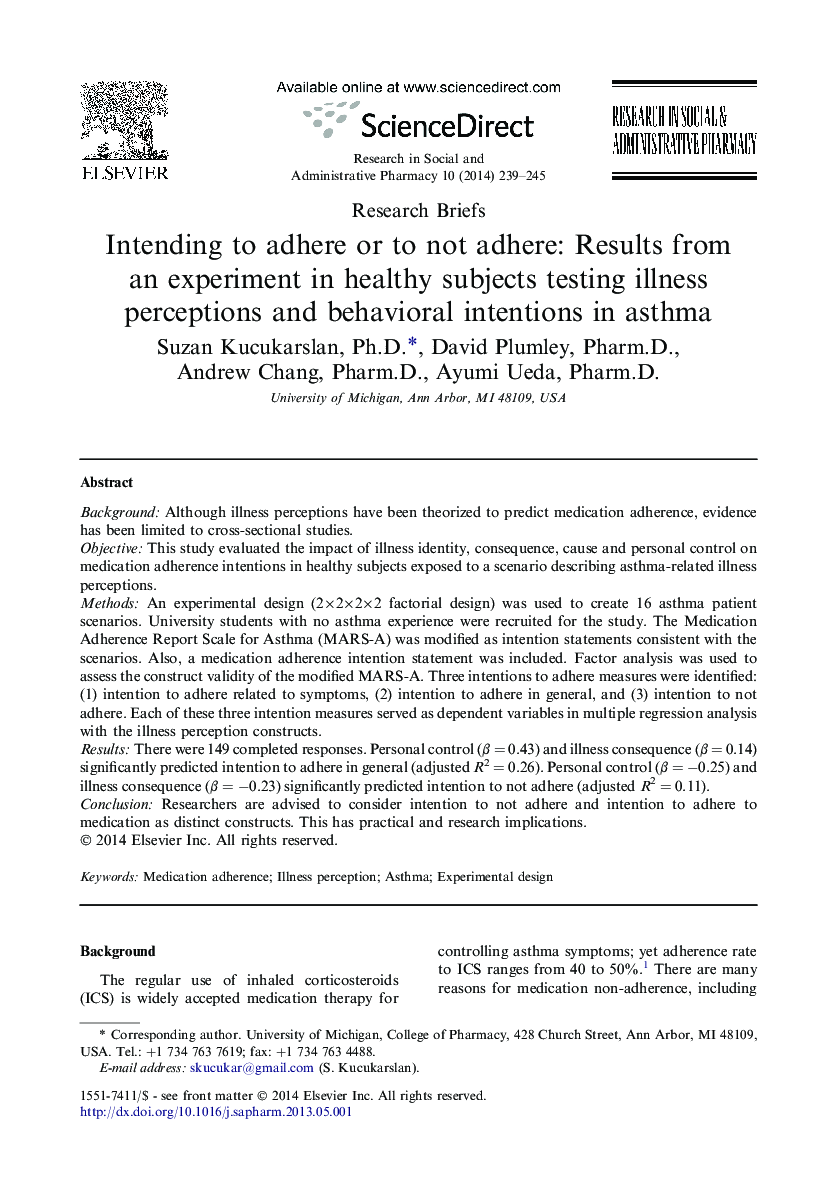| Article ID | Journal | Published Year | Pages | File Type |
|---|---|---|---|---|
| 2508721 | Research in Social and Administrative Pharmacy | 2014 | 7 Pages |
BackgroundAlthough illness perceptions have been theorized to predict medication adherence, evidence has been limited to cross-sectional studies.ObjectiveThis study evaluated the impact of illness identity, consequence, cause and personal control on medication adherence intentions in healthy subjects exposed to a scenario describing asthma-related illness perceptions.MethodsAn experimental design (2×2×2×2 factorial design) was used to create 16 asthma patient scenarios. University students with no asthma experience were recruited for the study. The Medication Adherence Report Scale for Asthma (MARS-A) was modified as intention statements consistent with the scenarios. Also, a medication adherence intention statement was included. Factor analysis was used to assess the construct validity of the modified MARS-A. Three intentions to adhere measures were identified: (1) intention to adhere related to symptoms, (2) intention to adhere in general, and (3) intention to not adhere. Each of these three intention measures served as dependent variables in multiple regression analysis with the illness perception constructs.ResultsThere were 149 completed responses. Personal control (β = 0.43) and illness consequence (β = 0.14) significantly predicted intention to adhere in general (adjusted R2 = 0.26). Personal control (β = −0.25) and illness consequence (β = −0.23) significantly predicted intention to not adhere (adjusted R2 = 0.11).ConclusionResearchers are advised to consider intention to not adhere and intention to adhere to medication as distinct constructs. This has practical and research implications.
